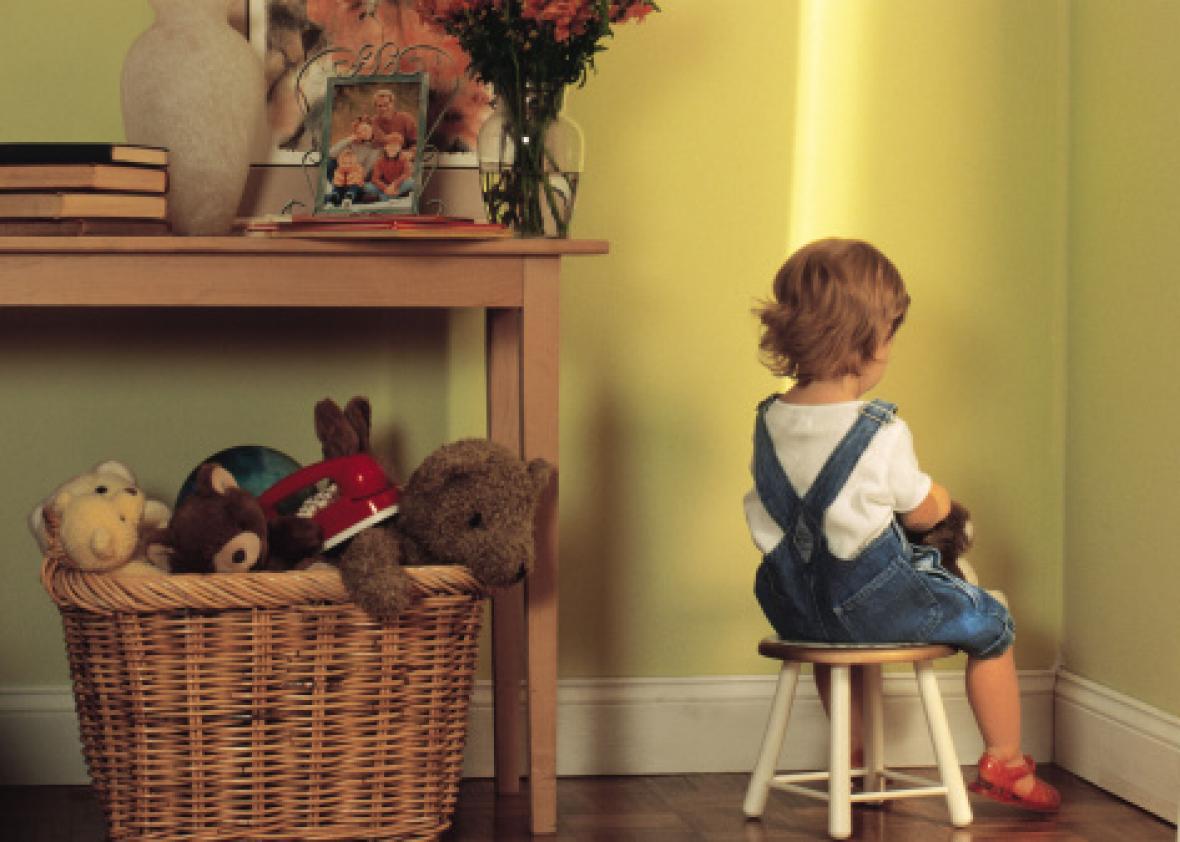No matter how competent a parent you consider yourself, there’s an expert out there who believes you are doing it all wrong. The latest example for me comes from Alan Kazdin, director of the Yale Parenting Center, who says we should stop punishing our children. This means no timeouts, no grounding and, least surprisingly, no hitting.
In a recently published and widely shared interview with the Atlantic, Kazdin explains his unusual methods and how they work. On the whole, he believes that the key to molding mannerly kids is the near-exclusive use of positive reinforcement. “Parents might start out reasoning, but they’re likely to escalate to something a little bit more, like shouting, touching, firmly dragging their child, even if they’re well-intentioned. The way to get rid of a child’s negative behavior is not to do the punishment. Even a wonderful punishment, gentle punishment like time-out, or reasoning, those don’t work,” he told the Atlantic’s Olga Khazan.
Kazdin believes that the best way to change behavior is to intervene before the behavior happens. This can happen by directing your child with a gentle tone and giving her or him choices. For example, instead of yelling, “Time to tidy up your room” to a child who hates cleaning, a parent might calmly say, “It’s time to clean up your room. What do you want to be in charge of picking up?” When the child complies, a parent should effusively praise him or her. For more serious, and potentially dangerous, transgressions, Kazdin recommends figuring out what is motivating the behavior and combatting it with what he calls “positive opposites.” One does this by praising the child for the absence of the undesirable behavior. In his example, a parent will seize on a neutral moment around the dinner table with a typically surly teenager and tell him how nice it is to have him there.
Kazdin’s theory is appealing. Who wouldn’t want to gain entry to this parenting Elysium where moms and dads need only administer encouraging observations and loving smiles to keep their children in check? Still, I’m having a hard time buying it. This is not only because of the whiff of too-good-be-true that his approach carries, nor my natural resistance to being told that I am doing things wrong, but because there are times when gentle punishments like time-outs feel absolutely appropriate. Also, in my experience, they work.
In order to better understand how potentially disastrous my penchant for time-outs really is, I reached out to a few childhood psychologists. They explained to me that while, there is a growing resistance to punishment among childhood development experts, there’s still room for discipline—but distinguishing between punishment and discipline can be difficult.
“We’re seeing a big movement away from punishment,” said Michele Borba, educational psychologist and author of the forthcoming UnSelfie: Why Empathetic Kids Succeed in Our All-About-Me World. “We’ve got fifty or so years of research now on these issues and if you look at it, you can see it doesn’t work.”
Still, Borba said that “anything harmful to the child or others, or that goes against family values” shouldn’t be ignored, and a time-out can be an appropriate and effective way to signal to a young child that what she’s doing isn’t cool. “If you allow it, the kid might think, ‘Hey, I guess mom doesn’t care,” she said. The key is to try to do it as calmly as possible, and present it more as a break than a punishment. When it’s over, explain to the child what she did wrong and ask her to help come up with a way to fix whatever is bothering her.
Korba and others explained that while time-outs work in the short-term, they won’t do much for more serious, chronic behavioral issues. Ross Greene, the director of Lives in the Balance, a nonprofit dedicated to helping behaviorally challenged kids, and the author of The Explosive Child and the forthcoming Raising Human Beings, says parents need to take a different strategy with long-term problems.
Greene agrees with Kazdin that parents should avoid punishing bad behavior, though takes it one step further and says they should avoid praising desired behavior as well. Both responses are “cut from the same bolt of cloth” and incapable of fixing any underlying problems, he says, since children “habituate to punishments and satiate to rewards.” Instead, parents should create what he calls “collaborative partnerships” with their children, in which they help the child develop the skills they need to overcome their behavioral issues. “We need to shift the role of the caregiver from a behavior modifier to a problem solver,” Greene said. “You can teach your kids so many things when you are not tied to using rewards or punishments.”
Of course, kids might not always feel like collaborating. The same can be said for parents, who, while hopefully more emotionally mature than their offspring, can still lose it sometimes. For those moments, I was happy to learn, taking a time-out for everyone can be the best choice. “Parents get tired of talking and get impatient and lose emotional sobriety too,” said Carl Pickhardt, a writer and child psychologist. “Part of the purpose of the time-out is for the parent to cool down, gather your wits together, and think about what you want your kid to learn from the encounter.”
